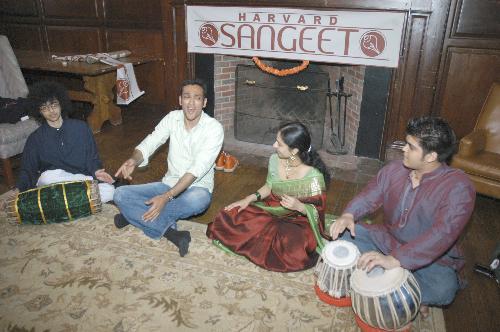If the upcoming Harvard Sangeet performance is any hint of the types of performances to be highlighted at Arts First, then next week promises to be as diverse and varied as it is interesting and talented. The one-hour show will give the audience a glimpse into a traditional South Indian music called Carnatic.
Vocalists Samir V. Rao ’08 and Vasanthi Sridhar ’07 will perform, accompanied on traditional Carnatic instruments by violinist Vivek A. Rudrapatna ’06, and mridangam (a double sided South Indian drum) player Shakeel Avadhany (MIT ’09).
According to Rudrapatna, Carnatic music is very similar to other music forms, such as Russian classical, in so far as having a 12-note octave. However, what truly sets it apart is the improvisatory nature of the compositions, based on variations in rhythms with an underlying eight beat cycle and a bass scale, called a Raga.
Rudrapatna says that there is no rehearsal involved in the performance process. “It’s more like an oral tradition. You go up there, have a basic idea of lines, and play a dialogue back and forth for three hours. ”
While American tradition is used to improvisation in the form of instruments and jazz, what we are not as familiar with is the type of vocal improv, which will happen next Friday night. Each of the six compositions (three performed by each singer) will start off with a traditional, spot-invented vocal prelude, which will be backed up by the violin. Later, percussion will be added.
“As the concert progresses, we will start with heavy, deep classical pieces, followed by lighter ones that will have a focus on rhythm. Traditionally, there is more audience interaction—like a devotional,” said Sridhar.
The Sangeet performance will feature a drum solo as well (also improvised), in which Avadhany will highlight the many different notes that can be formed from this South Indian instrument.
—Nicole C. Perlman
Read more in Arts
Why Do I Keep Super Sizing Me?













